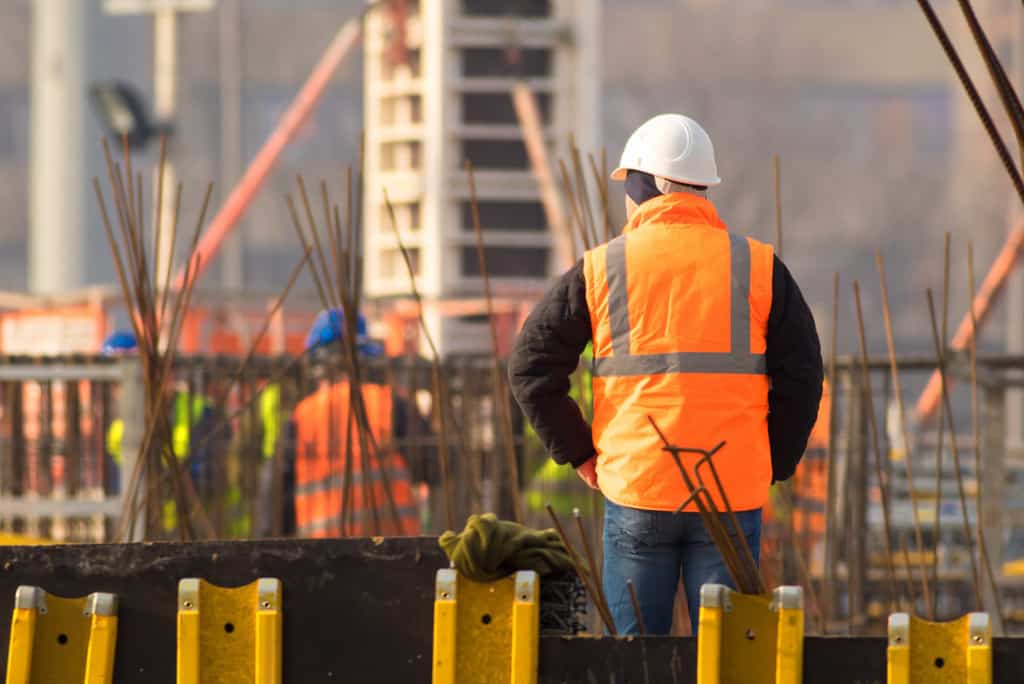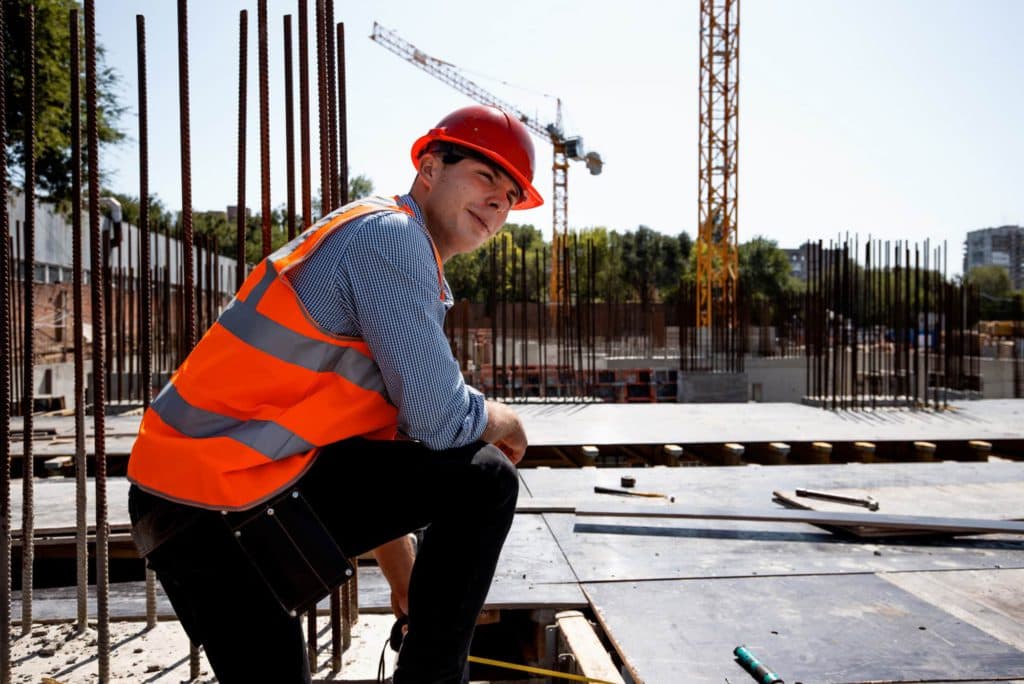Working in the construction industry in Australia is a lucrative endeavor. According to a recent report, nine per cent of tradespeople in Australia make upwards of $200,000 a year, with many reporting nearly $12,000 a week in earnings. This means you should be adequately insured to cover your income.
At IMAR, we’ve been working with tradies, builders, and small business owners in Australia (to ensure they have the cover they need), for more than 35 years.
One of the things our tradie mates often enquire about, is contract works insurance. In this article, we’ve put together a comprehensive guide about what it is, how it works, what it covers, and how it can benefit you.
We then look at the types of insurance specific to your profession, while listing some tips to further ensure safety and security on construction sites.
What is contract works insurance?
In a nutshell, contract works insurance is designed to cover yourself and your assets while you’re working on a project, including:
- Building materials you are using for the project
- Your machinery, tools, and equipment
- Any temporary buildings or dwellings you set-up
- Any hired plant you have brought in specific to the project
It covers payments for repairs or work that needs to be redone, due to damages caused by an insured event like fire, storms, floods, vandalism, and theft. Generally, it doesn’t cover unfortunate events like acts of terrorism or freak accidents like aeroplane crashes.
We recommend you check with your insurance provider about inclusions and exclusions particular to your policy.
How does it work?
Let’s say, for example, you’re working on installing a deck or patio on a residential property. During the work, a fire breaks out and damages both the existing structure and the work that you’ve done. The contract works insurance covers the cost of repair to the damages done to the structure you’ve been working on, meaning you don’t lose any money.
What the contract works insurance doesn’t cover, however, is the damage done to the existing property. The homeowner’s insurance should cover these damages. The same should be true if you are working on a commercial property.
Contract works insurance may already be part of your tradie’s insurance policy, depending on your provider. However, it can also be purchased as a standalone product. Contract works insurance typically has two main types:
- Single Project Policy – bought to cover the duration of a single, specific project
- Annual Policy – bought to cover all projects undertaken within 12 months
How much should the contract works insurance cover?
Buying the right level of contract works insurance is essential, so you’re sure you’re covered if you need to make a claim. Thus, your cover level should be at least equal to the total cost of the project (including labour costs and materials). This is true even if the projected completion date is longer than one year.
To illustrate, let’s say your current contract is to build a recreation area for a commercial property. The projected cost is $300,000, and the work should take six months. Your contract works insurance policy should be at least $300,000.
The equation will be similar if, for example, you are working on a project worth $2 million, and it’s expected to be completed in 20 months – your level of cover should be at least $2 million.
Why do you need contract works insurance?
As with most things in the construction industry, it is important to be prepared for anything. And while your typical insurance policy might cover most of your needs, it doesn’t hurt to be extra cautious. A contract works insurance policy means added protection should anything unfortunate occur while you’re working on a project.
Additionally, some residential or commercial property owners require you to have contract works insurance. You’ll gain an immediate advantage over your competition when you can present a contract works insurance policy when required.
Other Types of Insurance
As previously mentioned, contract works insurance is either a standalone product or a policy that is already attached to your existing insurance. Make sure that you are buying the correct type, tailor-made to your profession.
Builder’s Insurance
If you’re a licensed builder, there are a range of insurance options you may consider to protect your assets, business and yourself. Builder’s insurance can help with many of the risks you may be exposed to and the best way to find out what covers you may need, and which ones you don’t – is to speak with an IMAR broker.
Builder’s insurance typical options include the following:
- Machinery and tools insurance
- Public liability insurance and professional indemnity
- Contract works
- Commercial motor
- Personal Accident & Illness
Tradies Insurance
If you’re a tradie, you will need insurance for unexpected accidents, injury, or damage to a third party within the premises.
The policy may cover the repair or replacement of damages, medical expenses due to the injury, or compensation in case of death. A customised policy may also include cover for your tools and income.
Here are some typical options for tradies insurance:
- Personal Accident & Illness
- Tools insurance
- Income protection insurance*
- *You may also wish to consider Income Protection Insurance as an alternative to personal accident & illness. Like Injury and Illness Cover, income protection insurance replaces the income lost through your inability to work due to injury or sickness, but is guaranteed renewable – this means the insurer can’t refuse to renew your cover each year. If you’re interested, this cover is available through Gallagher Benefit Services, who can advise you on whether this insurance is right for you. If illness, injury or other circumstances were to affect your lifestyle, health and/or income, personal insurance, together with the right advice, may assist you to stay on top of bills and maintain your lifestyle while focusing on your recovery.
- To discuss your Income Protection insurance needs, you can contact Gallagher Benefit Services team on 1300 850 757.
- Gallagher Benefit Services is a division of Arthur J. Gallagher & Co (Gallagher), providing employee benefits, consulting and financial advice to businesses and individuals. Gallagher Benefit Services FSG is available here.

Some Tips to Reduce Risk Factors at Construction Sites
While it is a good measure to be insured, exercising precautions will further reduce risk factors like theft, and injury and health risks, that contribute to the illness of construction workers. Here are some tips to avoid these kinds of problems on site:
Theft
In Australia, about $650 million worth of construction machinery is stolen from work sites every year. To avoid theft on-site, ensure tools and equipment are locked away securely. Also, avoid having containers or boxes with valuable items placed in an open location. The installation of security cameras may be encouraged for added security.
Fire
Construction sites are usually considered a fire hazard due to electrical wirings, flammable materials, and smoking workers. For added safety, ensure all electrical works are compliant with applicable building codes. The proper placement of fire extinguishers is encouraged, and you should consider enforcing strict no-smoking policies on the jobsite.
Injuries
Construction workers are more exposed to accidents and health risks. Risks can be reduced this by conducting safety training, equipping workers with proper protective gear, and keeping the workspace free from debris. The addition of guard rails, screens, or nets may also prevent falls, one of the most common injuries in the construction industry.
Hazardous materials
Chemical and physical hazards like toxic materials, chemicals, and heavy machinery are common at construction sites. Safety materials for each hazardous chemical should be provided to all workers, including personal protective equipment. Proper education and training for all workers may decrease the risk of unnecessary contact with these dangerous materials.
Moving objects
Falls, slips and trips are generally caused by being hit by moving objects. Maintain proper work area management by tidying cluttered work areas, putting additional lighting for proper visibility, installing warning signs and having adequate edge protection, especially for people working from heights.
Hearing problems
Constant exposure to loud noises can lead to hearing problems. Some sources of noise in construction sites are power tools, vehicles and other loud machinery.
Asbestos
Asbestos is found in ceiling tiles, insulation, wall plaster or cement siding. It cmay cause respiratory issues – the risk of inhaling the dust is reduced by measures such as proper ventilation, equipment or clothing can reduce the risk of inhaling asbestos. Workers must not handle asbestos unless they have been trained and hold a licence that is current and appropriate for the type of work being done
Conclusion
The construction business is a hazardous industry. Having contract works insurance may mean your business is protected against damage and losses while the project is underway, and additional policies can cover other responsibilities. It’s important to identify your specific needs and have your cover tailor-made for you and your business. This will ensure that if something does go wrong, you are protected.
Renowned Insurance Brokers
IMAR has provided insurance cover for tradies, builders, and small businesses for more than 35 years. We make sure each customer has the cover they need at a competitive price. Our experts are on hand to help you now.
Contact us today by calling 13 IMAR (13 46 27) or by filling out our online form and we will to discuss the suitability of your current cover or provide insurance solutions for your growing business.
To the extent that any material on this page may be considered advice, it does not take into account your objectives, needs or financial situation. You should consider whether the advice is appropriate for you and review any relevant Product Disclosure Statement and policy wording before taking out an insurance



